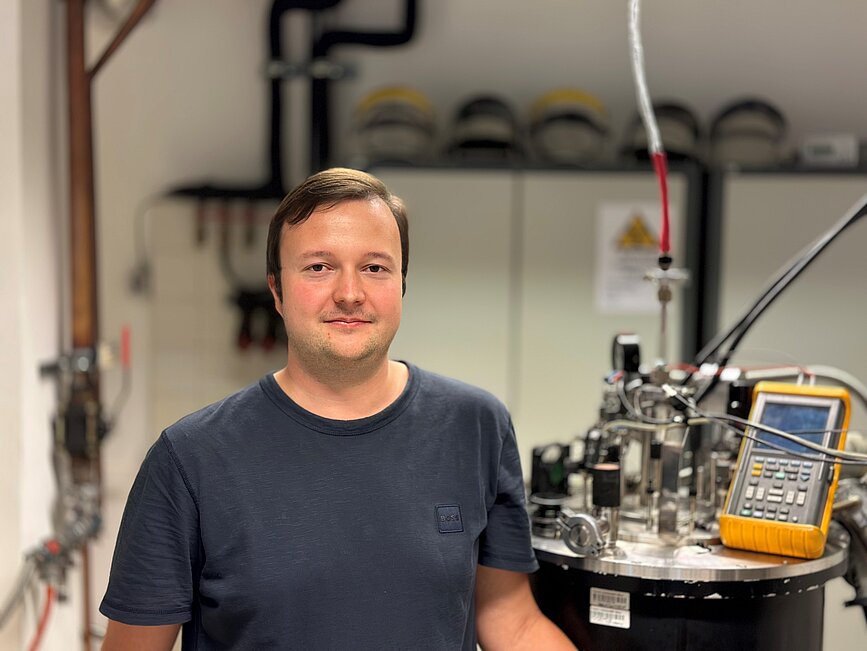What is the topic of your Ph.D. thesis?
Over the course of my PhD, I am trying to improve our understanding of damage caused by neutron radiation to high temperature superconductors.
What is the focus of research?
Magnetic confinement fusion requires high magnetic fields and the only economically feasible way to achieve these fields is to use superconducting materials for the magnet coils. The fusion reaction creates neutrons, which reach the magnet system and alter different properties of the superconductor, for instance the transition temperature or the maximum current carrying capacity.
We are emulating this using the TRIGA Mark II research reactor of the Atominstitut of TU Wien to irradiate samples and observe any changes to the physical properties using different direct and indirect measurement techniques.
What is the benefit for fusion research?
The magnet system of a fusion reactor is one of the major cost factors for the whole reactor. It is quite important to know how the superconducting coils behave over the course of the lifetime of the whole system. Furthermore, deeper understanding of the fundamental physics will enable us to tailor the magnet coil material to the specific environment found in a fusion reactor.
What are the biggest challenges?
On the one hand experimental physics always comes with its set of specific challenges, on the other hand there is still no comprehensive theory of high temperature superconductors. Thus, the challenge lies in setting up a robust experiment, in interpreting the measurement data, considering all possible sources of error and in the end drawing the right conclusions.
What plans do you have for your future? What will you be doing in five years? Would you like to continue research or are you going to work in the industry?
This is a really difficult question. I have just started with my PhD and haven’t thought so far ahead yet, but I hope that the interest in superconductivity will continue to grow and with that the positions either in research or industry.
What was your motivation to write a fusion relevant Ph.D. thesis? What fascinates you about nuclear fusion?
In my opinion transitioning to a post fossil fuel society and covering our growing and growing energy demand for the foreseeable future is humanity’s most important task for the next decades and I am excited to contribute a little bit to this endeavor.
I also enjoy working at Atominstitut with a great supervisor and great co-workers, who all share the same fascination for fusion and superconductivity.
